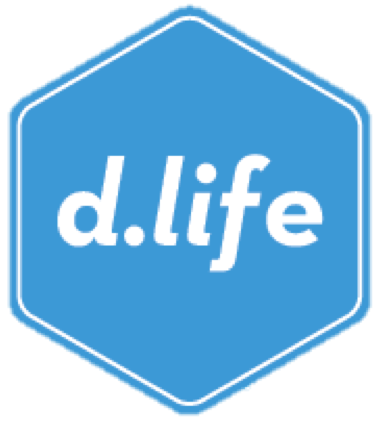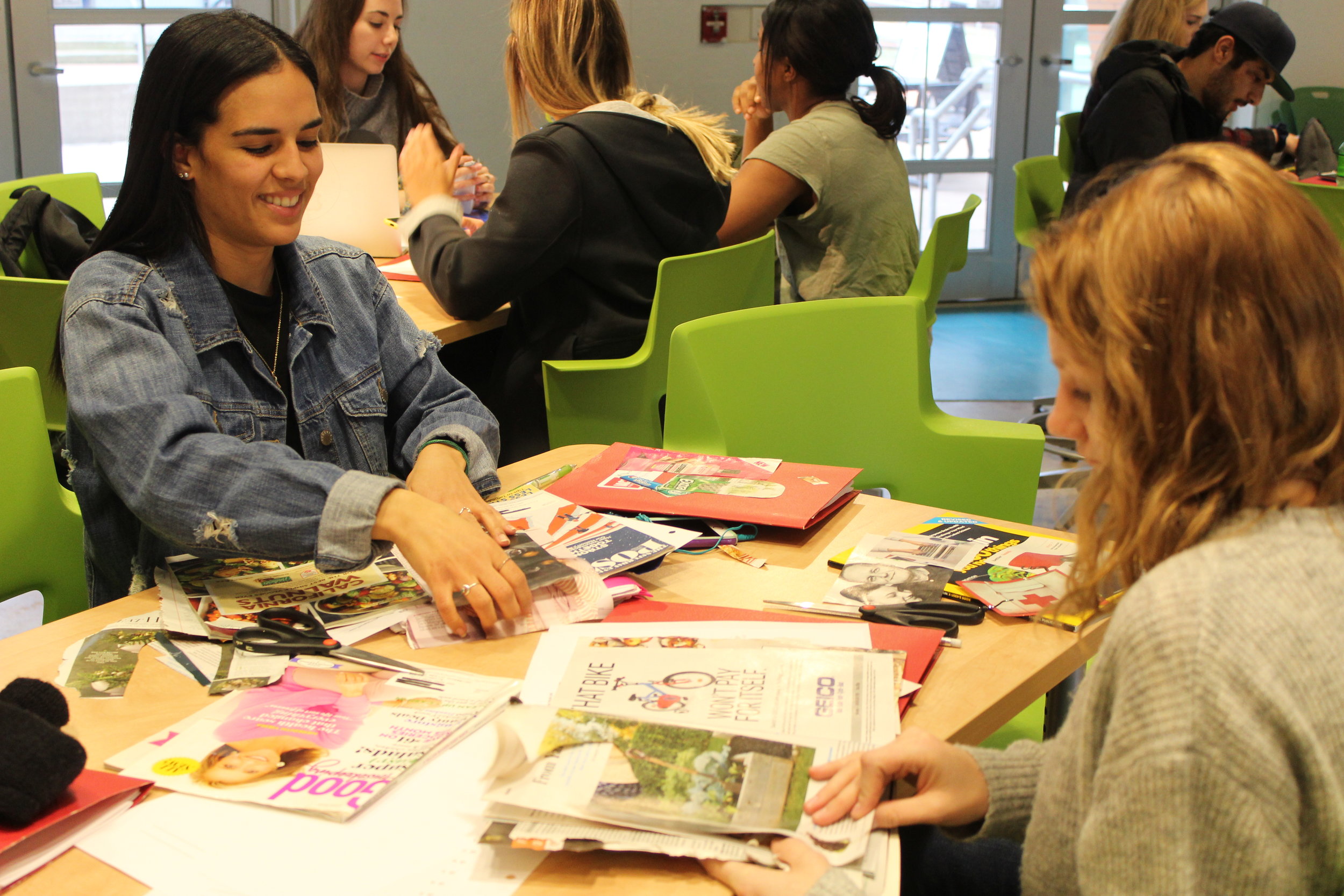Vocational Wayfinding at the University of Dayton
So often in higher education, we focus on WHAT our students plan to be, rather than giving them the space and opportunity to explore WHO they want to be. But vocational discernment has long been a part of the University of Dayton’s Catholic, Marianist mission and identity. In its efforts to educate the “whole person,” the University defines vocation as: “Answering a call to discover one’s unique gifts and employ them in service for the common good in ways that are personally satisfying and bring meaning to one’s life.” (source)
Keeping that holistic approach to education in mind, the University of Dayton developed the Institute of Applied Creativity for Transformation (IACT). Design thinking and the work of the d.school were a major influence in the creation of IACT, so when the opportunity arose for the Institute’s team to attend the Life Design Studio for University Educators in the summer of 2017, it was an ideal fit.
IACT was designed to empower a forward-thinking student to confidently develop the imaginative and creative skills necessary to excel and impact today’s innovative workforce, regardless of their major. Students enrolled in the IACT certificate program were already engaged in a process of self-discernment, connecting their disciplines of study to the needs of the world, but we wanted to expand that reach to more students across the university.
After attending the inaugural Studio in 2017, we launched a 1 credit, 12-week “Design Your Life” mini-course in the spring of 2018, with 22 undergraduate students enrolled. The course, taught by IACT Director, Adrienne Ausdenmoore, incorporates many concepts from the Life Design Studio, while also integrating the mission and vocational focus of the University of Dayton.
Over the course of the pilot semester, we learned so much about which aspects of the course resonated best with students, and where "gaps" in these types of conversations were happening in student's education and lives. Here are just some of the student insights from that first semester:
● “We study so much in school, but we never really talk about what we want to do in our careers.”
● “I like having the autonomy to design my life in the way that I want.”
● “I have learned to enjoy the process because the journey of life is more important than the destination.”
● “This experience has made me realize that my passions and interests don’t fit the career path that I am choosing.”
● “It gave me a sense that if something doesn’t work out in my current path, I can look for different options.”
● “I am no longer scared of the future, and will now embrace the unknown with open arms.”
● “I [learned that I] shouldn’t be afraid to explore the possibilities that I could do or would want to do before I decide on a set path.”
After that initial semester, the course was offered to any University of Dayton student. As of fall of 2021, 145 University of Dayton students (ranging from first-year undergraduate to PhD level) have completed the life design course. We have also expanded our reach to faculty and staff colleagues on campus, have conducted a number of vocational wayfinding workshops for various student cohorts, and are actively involved in cross-University strategies around vocation and life design.
Our learnings
● Students welcome the opportunity to think about WHO they want to be, and what that might look like. The amount to which their degree of study factors into their work in the course is entirely up to the student. This course offers the time and a structured process to reflect, share diverse perspectives with each other and think about the future — something that graduating seniors may otherwise find paralyzing, and underclassmen may not be encouraged to explore (beyond the scope of which classes they need to take next).
● Connecting the dots from each week’s activities and discussion to the next are key in order for students to synthesize their own experiences together. One way we are doing this is by including a workbook portfolio (compilation of all class activities/deliverables) as part of the requirement to receive credit for the course. This portfolio also encourages students to refer back to earlier insights throughout the semester.
● The course at Dayton does not have designated section leaders, so we incorporate regular feedback mechanisms (e.g.: index cards at the end of class to share 1 takeaway from that day) to gauge what is “sticking” with students. We also use this process to make sure we are keeping content relevant and meeting students where they are.
● Vocational discernment traditionally happens within the realms of Campus Ministry, and “career readiness” often happens in Career Services, but a growing network of colleagues across Dayton’s campus are aiming to debunk those assumptions. Life design at Dayton is about bridging the two: building the foundation for a lifelong journey that allows continued exploration and self-development, mixed in with career power tools like networking, information interviews, and utilizing your strengths and goals to build the life that you want.
● The mini-course was originally designed and targeted to upperclassmen and graduating seniors who were living within the IACT residential community, but some of the surprising feedback we received was that students "wished they had this experience sooner." We are now exploring modifications to our course offerings and ways to support other campus initiatives that encourage the process of life design and vocational discernment earlier within a student's time at the university.
● Trust the process: vocation is a journey. As educators, we must keep in mind what unintended pressures we may be placing on our students to “have it all figured out.” Adrienne regularly shares the example of her own career, which started by taking a part-time administrative assistant position after graduation because it sounded interesting — even though it was outside the expected path of her major. 17 years later, she now serves as the department’s director.
Want to learn more about life design at the University of Dayton? Click here to connect with Adrienne Ausdenmoore, Director of IACT.

